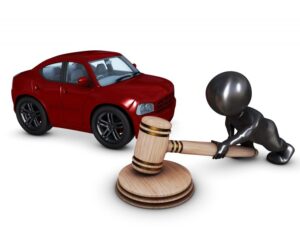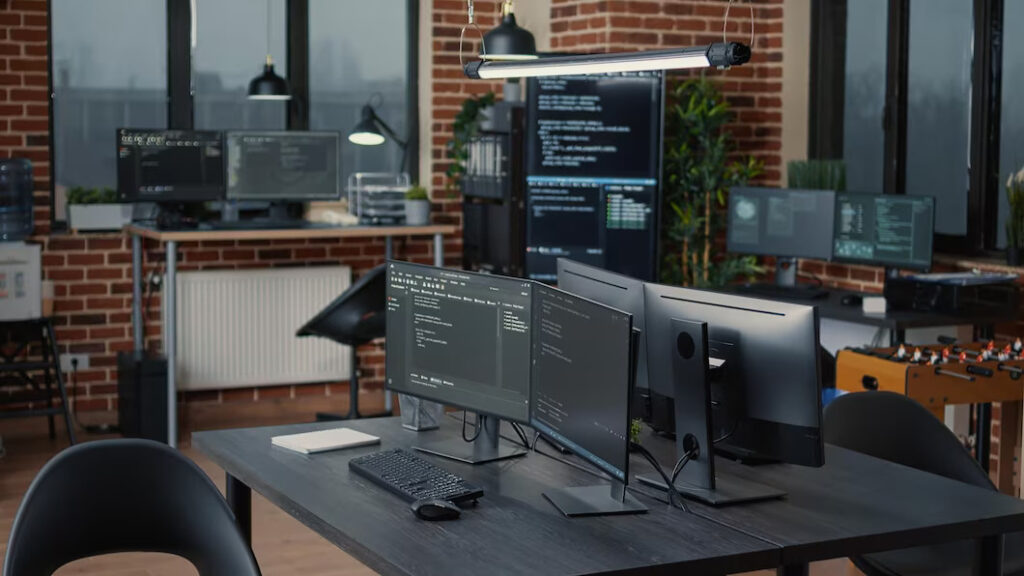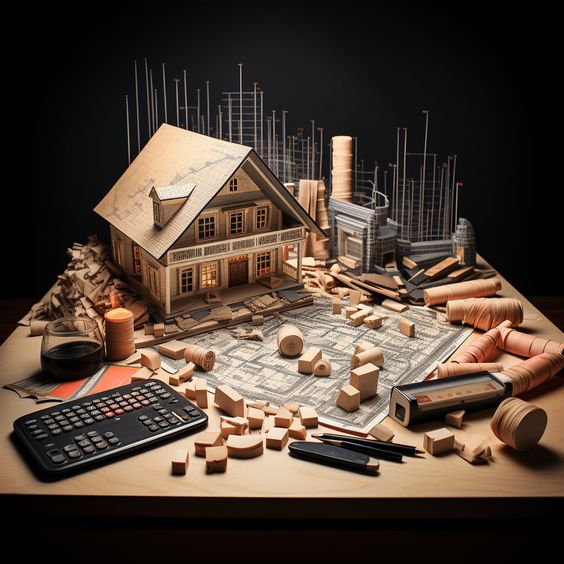Unlock the Secrets of Car Auctions: Tips and Tricks Revealed
Car auctions have become a popular and cost-effective way to purchase used cars in many countries, including Pakistan. These auctions allow buyers to bid on vehicles at significantly lower prices than those at traditional dealerships. Car auctions in Pakistan have evolved over the years from small-scale auctions catering only to a limited audience to large-scale events attracting buyers from all over the country.
Attending a car auction in Pakistan can be an exciting and rewarding experience, but it also requires some preparation and knowledge of the process. When attending the auction, inspecting the vehicles thoroughly before bidding is essential to ensure that they are in good condition and meet the buyer’s needs. It’s important to research the auction ahead to determine which vehicles will be available and to set a budget for the purchase.

The Impact of Economic Conditions on the Car Auction Market
The car auction market is not immune to the impact of economic conditions. In fact, it is often one of the first industries to feel the effects of economic shifts. When the economy is strong, the demand for new cars and luxury vehicles tends to rise, and this can lead to an increase in the number of cars being traded in and sold at auctions. Conversely, when the economy is weak, the demand for new cars and luxury vehicles tends to fall, and this can lead to a decrease in the number of cars being traded in and sold at auctions.
One of the primary effects of economic conditions on the car auction market is the price of vehicles. When the economy is strong, the demand for cars is high, which can drive up vehicle prices at auction. Conversely, when the economy is weak, the need for cars is low, and this can drive down the costs of vehicles at auction. This is because buyers may have less disposable income to spend on vehicles or be more cautious about making large purchases during an economic downturn.
Another impact of economic conditions on the car auction market is the types of sold vehicles. During economic booms, luxury and high-end vehicles are often in high demand, and this can lead to an increase in the number of these vehicles being traded in and sold at auctions. Conversely, consumers may be more focused on affordability and practicality during economic downturns. This can increase smaller, more affordable vehicles being traded in and sold at auctions.
How to Find the Best Deals at Car Auctions
Car auctions are a great place to find some of the best deals on used vehicles. However, finding the best deals at car auctions in Pakistan requires some preparation and knowledge of the auction process. Here are some tips to help you find the best deals at car auctions:
- Do your research – Before attending a car auction in Pakistan, it’s important to do some research on the auction house and the vehicles that will be available. This will help you determine which auctions are reputable and which vehicles are likely in good condition.
- Set a budget – It’s important to set a budget before attending a car auction. This will help you avoid overspending and give you a better idea of the types of vehicles you can afford.
- Attend the auction early – Arriving early will give you more time to inspect the vehicles and decide which ones you want to bid on. This can also give you an advantage over other buyers who arrive later and may have less time to inspect the vehicles.
- Inspect the vehicles thoroughly – It’s important to thoroughly inspect the vehicles before bidding on them. This includes checking the exterior and interior of the vehicle, as well as the engine and other mechanical components.
- Understand the bidding process – It’s important to understand the bidding process at car auctions in Pakistan. This includes understanding how the bidding increments work and when to stop bidding.
- Consider hidden costs – It’s important to consider any hidden costs associated with purchasing a vehicle at auction. This includes transportation costs, taxes, and fees.
- Don’t be afraid to walk away – If the bidding price on a vehicle exceeds your budget or if the vehicle does not meet your expectations, it’s important to be prepared to walk away. It’s better to miss out on a deal than to end up with a vehicle that will cost you more in the long run.
- Attend multiple auctions – Attending multiple car auctions in Pakistan can give you a better idea of the market and increase your chances of finding a great deal.
By following these tips, you can increase your chances of finding the best deals at car auctions in Pakistan. Remember always to research and be prepared before attending any auction.

The Most Popular Cars Sold at Auctions
Car auctions in Pakistan are a great place to find a variety of vehicles, from luxury cars to economy models. However, some vehicles are more popular than others regarding auctions. Here are some of the most popular cars sold at auctions:
- Toyota Corolla – The Toyota Corolla is one of Pakistan’s most popular cars and a popular choice at auctions. Known for its reliability and affordability, the Corolla is a great option for buyers looking for a dependable vehicle at a reasonable price.
- Honda Civic – The Honda Civic is another popular car sold at auctions in Pakistan. Like the Corolla, the Civic is known for its reliability and affordability and is a great choice for buyers looking for a practical and efficient vehicle.
- Suzuki Mehran – The Suzuki Mehran is famous for buyers looking for an affordable and reliable car. It is often sold at auctions in Pakistan and is an excellent option for those on a tight budget.
- Toyota Vitz – The Toyota Vitz is popular for buyers looking for a smaller car with good fuel economy. It is often sold at auctions in Pakistan and is an excellent option for those who want a reliable and practical vehicle.
- Honda City – The Honda City is popular for buyers looking for a stylish and practical vehicle. It is often sold at auctions in Pakistan and is a great option for those who want a reliable and efficient car.
- Toyota Camry – The Toyota Camry is popular for buyers looking for a larger and more luxurious car. It is often sold at auctions in Pakistan and is a great option for those who want a reliable and comfortable vehicle.
These are just a few examples of the most popular cars sold at auctions in Pakistan. However, it’s important to note that the popularity of these vehicles can vary depending on the auction house and the current market conditions. It’s always a good idea to do your research and attend multiple auctions better to understand the market and the types of vehicles available.
Understanding the Auction Process for Salvage Vehicles
Salvage car auctions are a unique way to purchase vehicles deemed a total loss by insurance companies. These auctions offer a chance for buyers to purchase vehicles at a discounted price, but it’s important to understand the auction process before getting started. Here’s a breakdown of the auction process for salvage vehicles:
- Bidding: Like any other auction, the bidding process for salvage vehicles starts with an opening bid. Bidders will then raise their bids until the highest bidder is determined. It’s important to set a maximum bid beforehand to avoid overspending.
- Auction types: Salvage car auctions can be held online or in person. Online auctions may have a more extended bidding period and require a deposit or proof of funds to participate. In-person auctions typically allow bidders to inspect the vehicles before bidding.
- Vehicle history: Salvage cars have typically been involved in a major accident or natural disaster and may have extensive damage. It’s important to obtain a vehicle history report before bidding to understand the extent of the damage and the vehicle’s repair history.
- Inspection: In-person auctions typically allow bidders to inspect the vehicles before bidding. It’s important to thoroughly inspect the vehicle for any damage or missing parts, as this will affect the resale value.
- Payment and transport: Winning bidders typically have a set amount of time to pay for the vehicle and arrange transportation. It’s important to factor in the cost of transport and any repairs needed when determining the maximum bid.
Salvage car auctions can be a great way to purchase vehicles at a discounted price, but it’s important to research and understand the auction process. With careful planning and consideration, salvage auctions can be a great opportunity to find a unique vehicle at a great price.

The Importance of Pre-Auction Inspections for Buyers and Sellers
When it comes to car auctions, both buyers and sellers can benefit significantly from a pre-auction inspection. Pre-auction inspections are a thorough examination of a vehicle’s condition, usually conducted by a professional inspector. Here’s why pre-auction inspections are so crucial for both parties:
For buyers
- Knowing the condition: A pre-auction inspection can reveal any underlying issues or damage to the vehicle that may not be immediately visible. This can help buyers make a more informed decision and avoid purchasing a vehicle that requires extensive repairs.
- Negotiating power: If an inspection reveals any vehicle issues, buyers can use this information to negotiate a lower price with the seller.
- Peace of mind: Knowing the vehicle’s condition can give buyers peace of mind and help them feel confident in their purchase.
For sellers
- Disclosure: A pre-auction inspection can help sellers identify any issues with the vehicle and disclose them to potential buyers. This can help build trust with buyers and lead to a smoother transaction.
- Accurate pricing: Knowing the vehicle’s condition can help sellers accurately price the vehicle, avoiding overpricing or underpricing.
- Increased interest: A pre-auction inspection report can be used as a marketing tool to attract potential buyers and increase interest in the vehicle.
Overall, pre-auction inspections are crucial for buyers and sellers in the car auction market. They provide essential information about the condition of the vehicle and can lead to more informed decision-making, better negotiations, and, ultimately, a smoother transaction.
Navigating Auctions for Luxury Cars and Classic Cars
Navigating auctions for luxury and classic cars can be a unique experience that requires a different approach than traditional car auctions. Here are some tips for navigating auctions for luxury and classic cars:
- Research: It’s important to research the car you’re interested in and understand its value in the current market. This will help you determine your maximum bid and avoid overspending.
- Inspect the car: Luxury and classic cars are often older and have unique features that may require a more thorough inspection. Inspecting the car for any damage or missing parts is important, as this will affect the resale value.
- Understand the auction process: Auctions for luxury and classic cars may have different rules and regulations than traditional car auctions. Understanding the auction process and any fees or requirements is important before getting started.
- Consider using a broker: Luxury and classic car auctions may have a higher entry fee and require more specialized knowledge. Consider using a broker specialising in these types of auctions to help navigate the process.
Navigating auctions for luxury and classic cars can be a rewarding experience, but it requires careful research and planning. With these tips, you can confidently participate in these unique auctions and potentially find a rare gem at a great price.

Differences Between Government and Private Car Auctions
Car auctions are a popular way for people to buy and sell used cars, and there are two main types of auctions: government and private. Here are some of the key differences between the two:
- Sellers: Government car auctions are typically used to sell surplus vehicles no longer needed, such as police cars or government-owned fleet vehicles. On the other hand, private car auctions are often used by dealerships or individuals to sell their used cars.
- Access: Government car auctions are often open to the public but may require registration or special clearance. Private car auctions, on the other hand, may require an invitation or membership to attend.
- Prices: Government car auctions often have lower starting bids and prices than private car auctions, as the goal is to sell off surplus vehicles rather than make a profit. On the other hand, private car auctions may have higher starting bids and prices as the sellers are looking to make a profit.
- Vehicle conditions: Government car auctions may have vehicles in good condition but have been retired from government fleets. However, private car auctions may have a broader range of vehicles with varying needs, including those requiring more extensive repairs.
- Selection: Government car auctions may have a limited selection of vehicles, as they are often selling off surplus inventory. On the other hand, private car auctions may have a more comprehensive choice of vehicles from various makes and models.
In summary, government and private car auctions have critical differences in their sellers, access, prices, vehicle conditions, and selection. Understanding these differences can help you decide which type of auction best suits your needs and budget.
Conclusion
In conclusion, car auctions offer a unique opportunity for buyers and sellers to participate in the used car market. Whether you’re looking to purchase a vehicle or sell one, attending a car auction can be a great way to find a good deal or make a profit. However, it’s important to research and understand the auction process before starting. By following the tips and insights discussed in this content, you can confidently navigate car auctions and potentially find the car of your dreams or make a successful sale.
FAQs
Q: How do I register for a car auction?
Ans: Registration requirements can vary depending on the auction, but you will typically need to provide proof of identity and a form of payment. Some auctions may also require a deposit. It’s important to check with the auction company for their registration requirements.
Q: What types of payments are accepted at car auctions?
Ans: Payment methods can also vary by auction, but most will accept cash, cashier’s checks, or credit/debit cards. Some auctions may also offer financing options for buyers.
Q: Can I test drive a car before buying it at an auction?
Ans: Typically, test drives are not allowed at car auctions. However, you may be able to inspect the car before the auction begins and review any available information about the car’s condition and history.
Q: What happens if I win a bid at a car auction but can’t pay for the car?
Ans: You may be subject to fees or penalties if you win a bid but cannot pay for the car. It’s important to read the auction terms and conditions carefully and only bid on vehicles you can and are willing to purchase.










